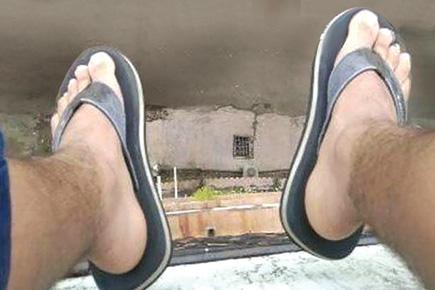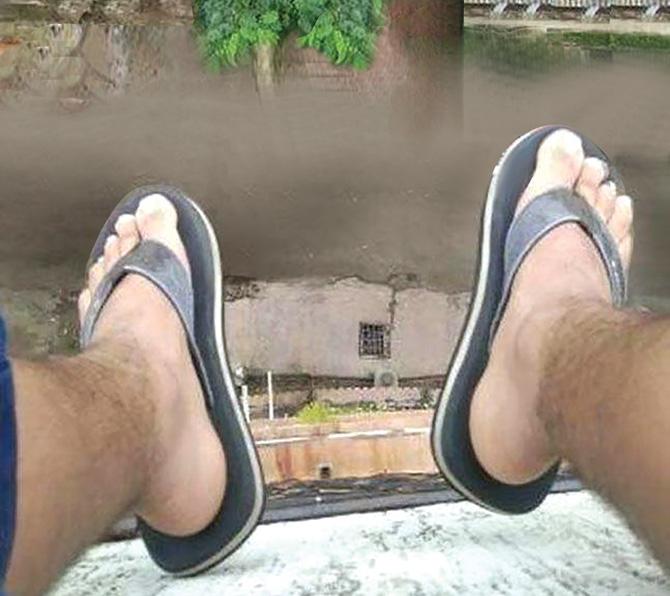The online 'game' Blue Whale Challenge is being blamed for adolescent suicides; the possible cause of a recent death in the city. Can it be viewed in isolation? Why do kids resort to such fatal steps?


Across the world, the number of men who commit suicide is higher than women but the number of women who attempt suicide is three times higher than men. Disturbing statistic that. Narrow the age factor, bring it closer home, and it's scarier — every hour a student kills himself/herself according to a 2015 National Crime Records Bureau survey. And if exam scores and other social pressures weren't bad enough, there's now the Blue Whale to deal with.
ADVERTISEMENT
The dark side of the Internet
The Blue Whale Challenge, which originated four years ago in Russia, is an online 'game' that sets 50 dubious tasks for participants. The 50th and final task is committing suicide. According to experts, Blue Whale isn't alone, there are several such groups on social media. But who would want to be a part of such macabre socialising? Many youngsters, apparently.
Also read - Mumbai: Mental health experts decode why kids hurt themselves
Shikha Narayan, 21, says she has heard of the Blue Whale challenge but was tempted. "Teens who attempt it are probably curious at first," she feels. Psychotherapist Rizwana Nulwala attributes it to personality: "Some teens are at high risk or have high impulsiveness; they never think of consequences, and could be attracted to this." Even seemingly normal teens like 14-year-old Manpreet Sahans, who committed suicide last week, reportedly did so under the influence of the Blue Whale challenge.
Also read - mid-day online exclusive: Psychiatrist Dr. Harish Shetty on how to prevent suicidal tendency in kids
Clinical psychologist Sonali Gupta puts it down to the leapfrog development of social media in the last five years. Physical contact has dropped; families are nuclear, parents usually work, and so the child chooses to befriend faceless, sometimes, nameless entities on the Internet. "At times, teens don't know how to create a private social media account; thus opening themselves up to bad language, body shaming, sexual orientation-related humiliation, all of which affect them," says Gupta. A teenager's brain isn't fully developed to process all the information they have access to, and hormones are on overdrive, making them vulnerable, lonely and secretive.
Behind the defiance
However, in most recorded cases of Blue Whale-related deaths in Russia and Europe, the victims far from vulnerable, seemed to be making a bold proclamation while filming their tasks, even suicides. Gupta explains that most teens probably start off the Blue Whale game because it gives them an ego boost. Counsellor Shubhra J Mehta is quick to point out that the final suicide shouldn't be mistaken for defiance. "Making a bold proclamation or recording the act cannot be seen as indicative of defiance or absence of depression but may actually be caused due to their emotional disturbance," she explains.
Also read: 'Blue Whale suicide game' creator reveals why he invented the game
While all teenagers with a presence online could come across the Blue Whale or similar games, certain factors determine whether or not they will want to try it out. A lonely child is more susceptible as is a child who spends long unmonitored hours online. As for suicide (Blue Whale or otherwise), Nulwala says the normalising of it as seen on media is a huge factor, too. Movies and TV shows romanticise it, making teens see suicide as a legitimate act. There is also the matter of genetics. "If there is a history of mental disturbance, or suicide, or if the teenager has seen a close relative take their life, he/she could feel that suicide is a possible way out," she explains.
Today's Indian teenager is a developing child who deals with excessive freedom, an overload of information on the Internet, early relationships and breakups (dating begins at 10 and 11), all of which they are ill-equipped to deal with. So, taking up a challenge that ends in suicide may not appear so outlandish.

Sonali Gupta, Clinical Psychologist
The bright side
While mental health in India is a ticking bomb with too many who need help and too few to provide it, teens and parents are becoming more aware. Drishti Iyer, 16, lost her mother earlier this year and explains why she approached the school counsellor. "I would constantly think of my mother and couldn't concentrate on studies. I couldn't speak to my father or grandfather about the same because of our generation gap. And, my friends are my age after all; they couldn't help either." The counsellor provided practical advice which Iyer says has helped her.
But, not all teens could be self-perceptive like her. Nulwala sums it up: "If you feel your child seems disturbed or upset, don't beat around the bush. Ask them outright if they have thought about taking their lives. The answer is usually honest and you can immediately seek help."
 Subscribe today by clicking the link and stay updated with the latest news!" Click here!
Subscribe today by clicking the link and stay updated with the latest news!" Click here!







